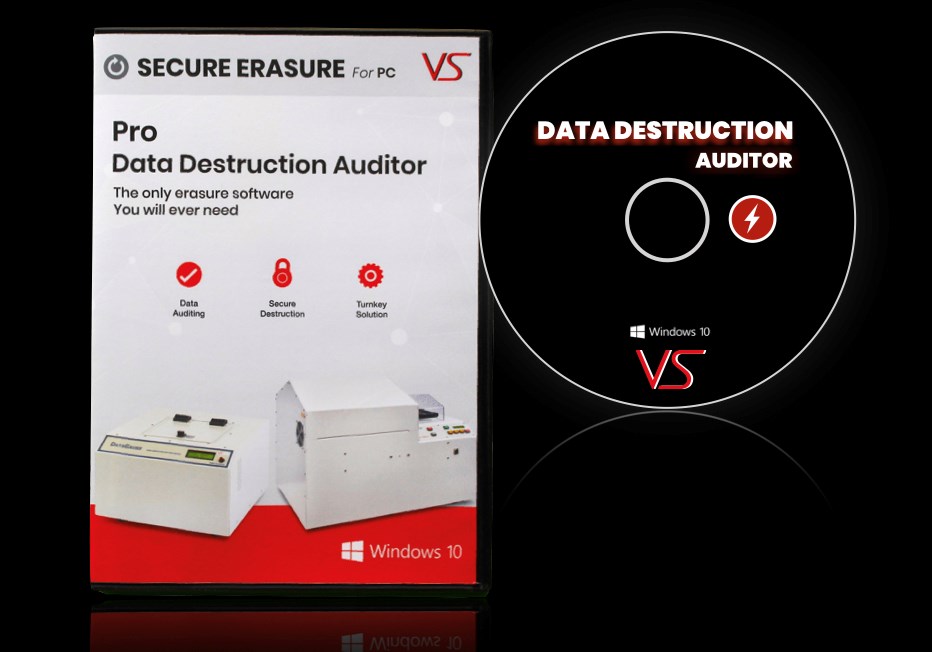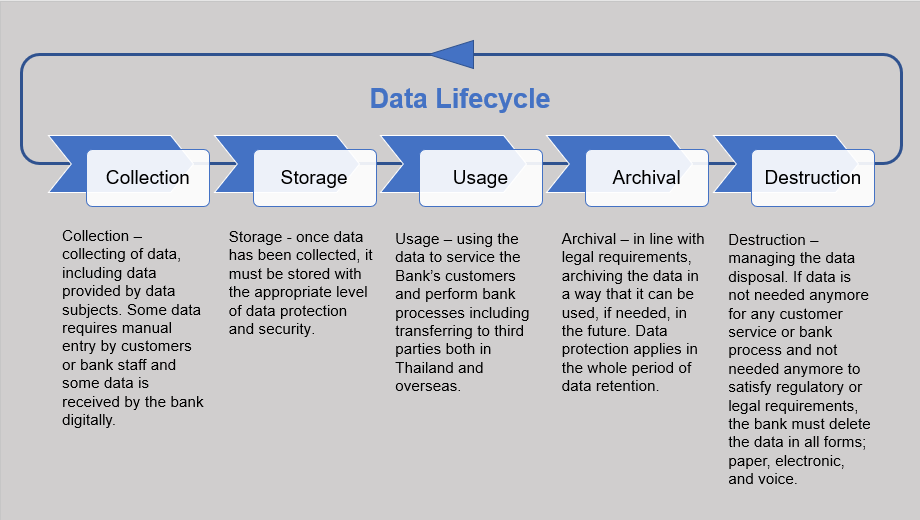Why Data Destruction is an Important Element of Comprehensive Cyber Security
Why Data Destruction is an Important Element of Comprehensive Cyber Security
Blog Article
Checking Out the Value of Data Devastation in the Context of Computer System Safety Solutions and Protecting Confidential Information
In an era where data breaches are progressively typical, the relevance of effective data destruction can not be overstated. What techniques can companies carry out to enhance their data destruction protocols?
Understanding Information Destruction
Data destruction is a vital element of computer security that entails the long-term removal of information from storage gadgets to stop unapproved gain access to and possible information breaches. In a significantly electronic landscape, organizations encounter heightened dangers connected with sensitive details being incorrectly accessed or exploited. Reliable data devastation safeguards against these dangers, making certain that private dataâEUR" such as client info, copyright, and financial recordsâEUR" can not be recuperated after disposal.
Recognizing the importance of data devastation expands past simple conformity with governing and lawful structures; it is important for maintaining organizational honesty and depend on. When information is poorly taken care of or improperly destroyed, the consequences can be extreme, including economic loss, reputational damage, and lawful responsibilities.

Approaches of Information Removal

One common approach is data wiping, which entails overwriting existing data with random patterns several times. This technique renders the initial information irretrievable, making it a preferred option for companies seeking to shield personal info.
One more technique is degaussing, which uses an effective electromagnetic field to disrupt the magnetic domain names on storage space devices, efficiently erasing the information. This technique is especially efficient for magnetic media however is not suitable to solid-state drives.
Physical damage is one more durable method, squashing or involving the shredding of storage space gadgets. This approach assurances that data healing is essentially difficult, making it optimal for extremely delicate info.
Last but not least, encryption can function as a corresponding technique to information eradication. By encrypting data before deletion, companies can include an extra layer of safety and security, ensuring that even if residues are recuperated, they remain inaccessible without the decryption trick. Each technique needs to be chosen based upon the level of information level of sensitivity and the specific protection demands of the organization.
Legal Conformity and Information Safety
Organizations need to navigate an intricate landscape of lawful demands connected to data security, specifically after executing techniques of information eradication. Various laws, such as the General Information Defense Regulation (GDPR) and the Health Insurance Coverage Portability and Responsibility Act (HIPAA), impose rigid standards on how organizations should manage and get rid of of sensitive information. Failing to follow these policies can cause substantial legal repercussions, consisting of substantial penalties and reputational damages.
Information destruction procedures have to be carefully documented to show conformity with suitable legislations and standards. This documentation not just functions as proof of adherence to lawful responsibilities however additionally shows a commitment to protecting delicate information. Organizations should additionally establish clear plans regarding information retention and damage timelines, guaranteeing that data is not held longer than required.

In addition, normal audits and analyses of data destruction techniques are important to maintain compliance and adjust to developing legal structures (data destruction). By proactively dealing with legal requirements, organizations can reduce risks associated with data violations and show their dedication to data investigate this site safety. Ultimately, prioritizing legal compliance in data destruction procedures is not simply a governing obligation, yet an essential facet of a durable data security method
Influence on Business Online Reputation
The credibility of a business can be substantially impacted by its method to data damage and monitoring. In today's electronic landscape, where data violations can take place at any moment, the failure to effectively deal with delicate info can result in serious repercussions. Organizations that inadequately take care of information devastation risk revealing private customer info, which not just violates personal privacy laws but additionally deteriorates trust among customers and stakeholders.
A ruined online reputation can cause decreased customer commitment, as clients become reluctant to involve with a company that has actually shown oversight in shielding their data. Negative publicity surrounding a data breach can have a long lasting result, as prospective customers might be hindered by the regarded lack of protection. This can bring about a straight decrease in income and market share.
Furthermore, businesses that focus on data damage as component of their protection technique can boost their credibility by showcasing their commitment to guarding delicate details. By embracing rigorous data monitoring practices, organizations can not only mitigate risks yet additionally position themselves as credible entities in their particular markets, therefore enhancing their total brand picture.

Finest Practices for Secure Disposal
Implementing ideal practices for safe disposal of information is vital for minimizing risks related to information breaches and making certain conformity with personal privacy guidelines. Organizations needs to take on an extensive information disposal policy that details treatments for both digital and physical data destruction.
For physical data storage gadgets, such as hard drives, shredding or degaussing is recommended click this link to prevent data healing. Furthermore, companies must keep a chain of safekeeping paperwork during the disposal process, making certain accountability and traceability of disposed things.
For digital information, utilizing software program that complies with industry requirements for information cleaning is important. This software application ought to overwrite existing information several times, making recovery practically impossible. It is also important to verify the effectiveness of the information damage process with audits or third-party analyses.
Training employees on secure disposal techniques includes one more layer of protection, as human mistake can commonly cause information exposure. Regularly reviewing and updating disposal plans guarantees alignment with evolving laws and technical innovations. By applying these ideal practices, organizations can significantly lower the danger of unapproved data access and enhance their general information security strategy.
Conclusion
In final thought, information devastation is a fundamental element of computer system security services that makes sure the defense of personal details from unauthorized access. Applying reliable techniques of data elimination, sticking to lawful compliance, and acknowledging the effect on business reputation are vital components of a thorough data protection technique. By taking on finest techniques for secure disposal, organizations can promote trust with clients and safeguard delicate information, ultimately adding to a more secure electronic landscape.
In an age where information violations are significantly common, the importance of effective data devastation can not be overstated.Information destruction is an essential component of computer security that entails the irreversible elimination of data from storage space gadgets to avoid unauthorized gain access to and prospective information violations. Organizations needs to likewise establish clear policies relating to data retention and destruction timelines, making certain that information is not held longer than essential.
By proactively dealing with lawful needs, companies can mitigate threats associated with information violations and demonstrate their dedication to data protection (data destruction). Inevitably, focusing on legal conformity in information damage processes is these details not just a regulatory responsibility, but a fundamental aspect of a durable information safety method
Report this page